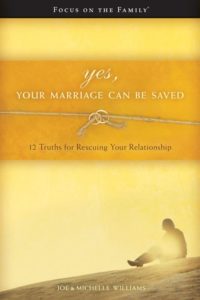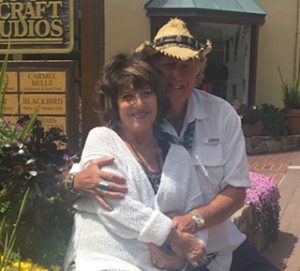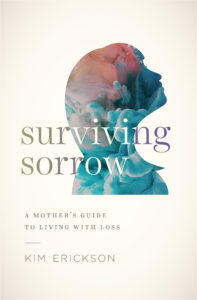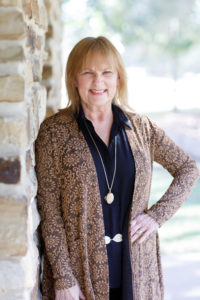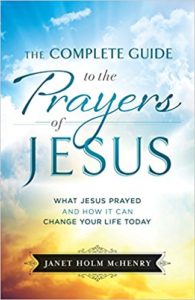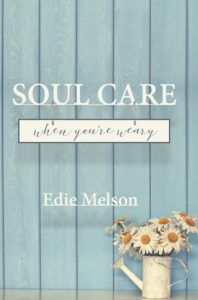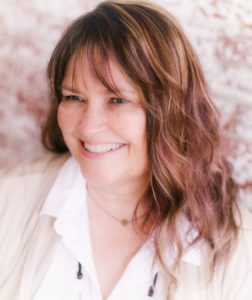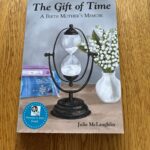WHAT DOES A MAN DO when his wife threatens to leave or get a divorce? His marriage can still be saved – even after a separation, but there is a right way and a wrong way to do it. Too often, men don’t know how to fight for their marriage and end up doing it the wrong way. But be encouraged! There is a right way to fight for your marriage, and with a little patience and soul searching, you have a good chance of turning things around. Below are two stories – the first shows the wrong way to fight for your marriage; the second shows the right way.
DOING IT THE WRONG WAY
When Wayne’s wife told him she wanted to get a divorce, he was stunned. He never saw it coming. At first, he just didn’t believe her when she said she wanted a divorce. He knew she loved him and usually went along with what he wanted. She couldn’t be serious. So he sent her some flowers and told her he loved her.
When she wasn’t swayed from her decision and told him she indeed was serious and wanted a divorce, he spent some time in denial. He would just go on as normal for awhile, and she’d get over it. But she didn’t get over it. She moved out.
Now he was angry. He went to her new apartment and argued with her, trying to persuade her to change her mind. He ridiculed her for wanting to run away from problems. But she didn’t back down. She asked him to leave.
Wayne was not used to losing. He was a born winner, and he would figure out how to get her to change her mind. He sent her flowers again, then bought her a lovely coat she’d been wanting.
She returned the coat and said she would be filing for divorce soon.
When he received the papers, he was devastated. But he wasn’t about to let her see his pain. No, he didn’t want a divorce, but he wasn’t going to crawl to her either.
He knew how to play this game, and he would win.
Gathering together all his male gutzpa, he decided he would simply show her she couldn’t win. He’d show her that without him, she would have a hard time surviving on her own. He’d show her who was boss. He hired an attorney and figured out how to squash her hopes of separating and divorcing by using every trick he could to keep her from getting any of his money. He fought to keep her from getting any of his retirement. He fought to deny her a share of his 401K. He fought to keep her from continuing on his insurance. Some fights he won, and some he lost. It was a nasty fight. And it became a nasty and bitter divorce—a divorce that DID take place despite his bitter determination.
When the divorce happened, reality set in for him. Suddenly, he realized he’d lost the love of his life. The fight was over, and she was gone. With the final decree, he was beside himself. How did this happen? How did he lose her? How would he go on without her? The pain he’d been holding back now had no place to go. He dissolved into a state of depression – sometimes trying to escape with a bottle, sometimes with other women, sometimes in a lonely state of grief. He even called her once, crying on the phone, telling her he loved her and wanted her back. But it was over. The divorce was final. She was moving on.
Occasionally, he tried to reach out to her with a note of apology, but now she didn’t even answer. His heart was broken, and it was years before he was able to move forward again.
A BETTER WAY TO FIGHT FOR YOUR MARRIAGE
When Seth’s wife told him she wanted a divorce, he was shocked. He never expected his loving and agreeable wife to want to leave him. He immediately questioned her, asked her why and what he could do to change her mind. She said there was nothing he could do, that it was too late for change, and she’d made up her mind. Seth was devastated.
Although heartbroken, he took a step back from their situation and tried to get a fresh look. He talked to a pastor, a counselor, and a trusted Christian friend. They advised him to trust God, to give his wife some space, and to ask God to show him the truth about what had been happening in his relationship with his wife. He turned to God in prayer, asking God for wisdom and direction. He found a couple of Christian books, and all the while, instead of chasing after his wife, he gave her some space.
As Seth searched the scriptures, read the books, and talked to his counselor, he began to see changes he needed to make in himself. He realized he’d been too controlling and too dismissive about his wife’s needs. He realized he hadn’t given her a voice in resolving conflicts and disagreements. He always won the arguments – or so he thought. But did he really win? Or did he just wear her out until she gave in to him?
As he recognized his failures, he wrote her a letter, apologizing to her for the many times he’d been insensitive to her and for railroading his own agenda instead of truly listening to her about her own needs and wants. Although she thanked him, she had no intention of changing course. She still wanted a divorce.
Seth was horribly discouraged, but his Christian friend as well as his counselor told him to give it time. That’s what the books said too. When he had contact with his wife, he didn’t press her or argue with her. Instead, he tried to encourage her and show her appreciation. He suggested they go to counseling and when she refused, telling him it was over, he told her he understood he’d made a lot of mistakes, and she had reason to want to back away. But he also said he was trying to make changes, and he thought they could work it out if they went to counseling and trusted God for their marriage. He told her he didn’t want a divorce, and if she wanted it, she’d have to be the one to file.
She visited a lawyer and talked about filing, but time went by with very little change. Whenever they had contact, he tried to have a positive attitude. He offered to help her with her car when it broke down and took care of her cat when she went away to visit her parents in another state. He tried to be supportive of her.
One day he called her to tell her about a change in their insurance, and they ended up having a long conversation – not about their relationship or their future, but just about what each of them were doing. They soon began having other conversations by text and phone – congenial conversations about current events in their lives and the lives of their families. Finally, in one of those conversations, Seth asked if she’d like to meet for coffee. She agreed, and gradually, they began to meet for other occasions – once to shop for a present for his sister who was having a baby, another time to catch one of their favorite music acts that had come to town. By this time, two years had gone by since his wife first said she wanted a divorce. They continued for several more months, having a merely friendly relationship – not talking about their marriage or their future together—just enjoying the times they spent together.
Finally, one day over coffee, his wife looked at him, and said, “You’ve changed.”
He felt his heart thumping inside of him. “Thank you,” he said. “God has been showing me some things I needed to see.” She smiled, and he smiled back. And then he said it. “Do you think there’s a chance we might be able to work this out?”
“Perhaps,” she said. “Maybe we should give it a try.”
These two stories are compilations from true stories that have happened to actual people. If your marriage is in crisis, I pray they will help you take an honest look at yourself so you can take a step back and move forward with God to bring positive change to your marriage.
If you want to fight for your marriage and avoid common pitfalls in order to save it, my book, Fighting for Your Marriage while Separated, will guide you through this difficult labyrinth of decision making and confusion so you can find the happy ending you are looking for.
Next week: Women: Do you know how to fight for your marriage?

